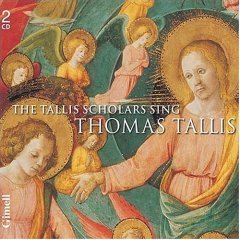I've been wanting to blog about this controversy for a couple of weeks now, but I found it hard to put into words what I thought until I saw that banner. The Pope put forth some complex ideas in German, a language these poor, misguided, agressively ignorant souls don't understand, and are expressing their outrage about what they think he said in English, another language they obviously don't understand.
If they had been willing or able to read the actual speech, they would have found that the Pope's perceived criticism of Islam was actually a quotation from a medieval Byzantine emperor that few people had ever heard of, and that the emperor's views are not shared by the pope. The supposed dig at Islam was offered almost in passing. Indeed, the pope's speech is far more critical of Western rationalism, empiricism, and scientific materialism than it is of Islam.
I'm going to try to summarize what I think the pople was saying as a thought exercise and a way to help me understand it:
- From a synthesis of Greek philosophy and the Judaeo-Christian revelation, Catholic Christianity formulated the principle that because God is essentially motivated by love for human beings and all of his creatures, He will act in a way that is comprehensible to human reason. Therefore, it is reasonable for the Christian and the human being to believe in God, and the existence and essential nature of God can be understood, at least in part, by the use of human reason. To act violently, especially in matters of religion is unreasonable, or contrary to the nature of God. The Greek influence on Christian thought, which postulates that God acts in accordance with reason or logos is what the pope refers to as "hellenization."
- Islam, however, which either never had or rejecteted a hellenizing influence, presents a concept of God who is so awesome, so transcendent, and so far above human understanding that the God of Islam is not bound to act in accordance with human reason.Therefore violence has always been considered a far more permissible means of spreading the faith in Islam than it has in Christianity.
- Unfortunately, a process of "de-hellenization" or rejection of the idea that God acts in accordance with human reason or logos began in Western thought too, beginning with the Protestant reformers who rejected the concepts of Greek philosophy and metaphysics as inadequate to describe God. God could not adequately be described using logic and reason. Therefore, faith ultimately became something subjective and emotional.
- The process of "de-hellenization" of Western Christian thought continued with the 19th-century liberal German theologians who emphasized the concept of Jesus as man, moral philosopher, and wisdom teacher, but not as transcendent, incarnate Christ. Jesus as Christ was held to be a theological construct which could not be supported by empirical historical evidence.
- If God could not be described using vocabulary derived from philosophy and logical reasoning, and Jesus was only a wise man or a moral teacher, then the only things that human reason and logic could safely be applied to with any hope of finding truth were the physical sciences that could be empirically verified by observation and experiment. The "de-hellenization" of Western thought was complete.
- The tendency in Modern Western thought to rely on the rational, empirical, and readily provable and exclude the spiritual, the metaphysical, or the religious leads almost inevitably to agnosticism or atheism, a point of view the Islamic world has rightly rejected. Therefore, the West and the Islamic world cannot enter into real dialogue as long as the West has deprived itself of a real vocabulary to discuss spiritual issues that are so essential to the Islamic world view. Islamic faith and secular materialism can't comprehend each other, much less talk to each other. In order for the West and the Islamic world to enter into a real "dialogue of cultures," as the pope puts it the West will have to rediscover the reasonableness of faith in God and its own religious traditions.
That's what I think the Pope was trying to say. If my vast and erudite readership could read the speech, read what I've written, and tell me if I'm on the right track, I'd greatly appreciate it.

